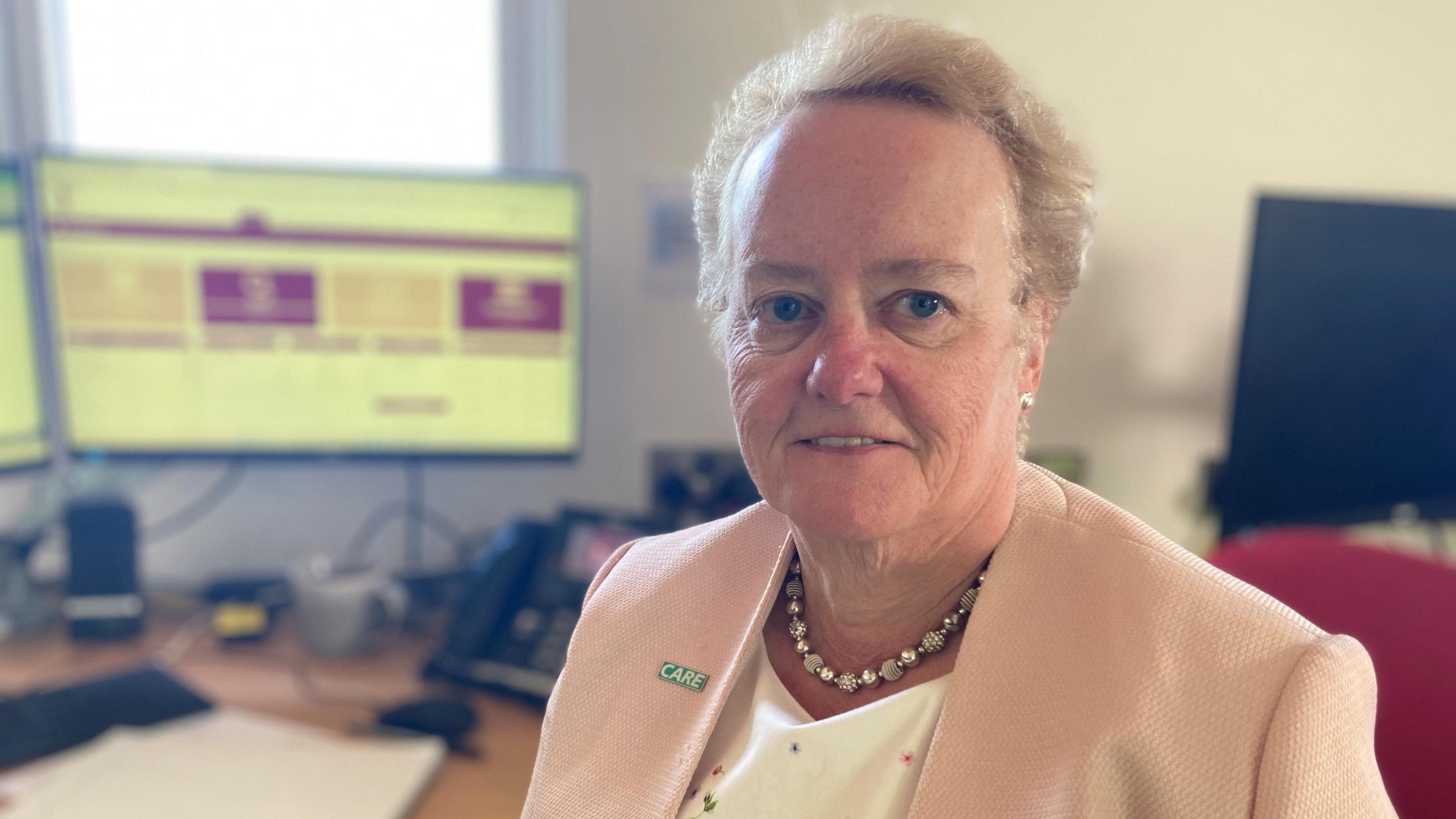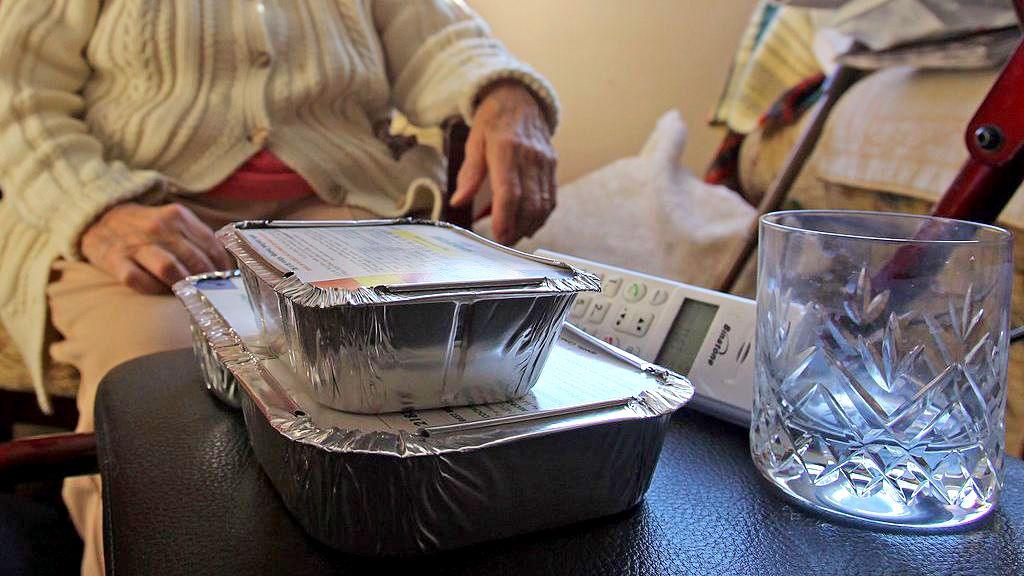Care firms say they face struggle to hire locally

Melanie Weatherley says care work is not just a job, but a "vocation"
- Published
Care companies in Lincolnshire fear they will struggle to hire enough workers if the government stops them recruiting from overseas.
The prime minister unveiled plans to ban recruitment of foreign care workers and tighten access to skilled worker visas, among other measures, on Monday in an effort to curb the level of legal immigration.
Melanie Weatherley, who chairs the Lincolnshire Care Association, said her company, Walnut Care, began hiring overseas workers three years ago because it was unable to recruit locally "however hard we tried".
The shortfall in staff had led to "waiting lists getting longer for people needing care".
"If we've got 10,000 vacancies in Lincolnshire, we can't go to the Department for Work and Pensions list of economically inactive, find 10,000 people and automatically assume they can do care," Ms Weatherley said.
"You need to ask yourself, would you want them caring for your nearest and dearest?"
Care work was not just a job, but "a cross between a career and a vocation," she added.
The government's plans, set out by Prime Minister Sir Keir Starmer, are designed to reduce net migration, which climbed to a record 906,000 over the year to June 2023, before falling to 728,000 in 2024.
The measures include scrapping a visa scheme, set up by Boris Johnson's government, that allows firms to hire health and social care workers from overseas.
Instead, companies will be required to hire British nationals or extend the visas of overseas workers already in the country.
According to Home Office figures, this change could cut the number of workers coming to the UK by between 7,000 and 8,000 a year.
Official estimates suggest that, even with workers from overseas, there were 131,000 vacancies, external in social care in England last year.
The government has promised a new fair pay agreement for care staff and wants companies to recruit and train more people from the UK.

Care home boss Tom Carter says the new rules would cause a "headache", but his firm will survive
Libertas, a Lincolnshire-based care firm, serves more than 800 people a day in Lincolnshire, with overseas workers making up between 10% and 15% of a 400-strong staff.
Director Tom Carter said the plans would "have an impact" on his workforce by reducing the pool of people the company had access to.
He said recruiting people from the UK could be a struggle because of the way jobs in the care sector were perceived.
The firm had overseas workers who "love the job" and "come to make a difference".
He added: "They're the ones that come stay and make a difference every day."

Care worker Prince Thakur says the role is a skilled one
Prince Thakur has been a care worker for two-and-a-half years, having arrived from India in 2021 to study for a masters degree in business.
Now a team leader, he said the role was a skilled one.
Mr Thakur said: "People who think that you don't need skill, they should come and try for one week and then they'll get to know."
Frances Ledbury, a Hull-based solicitor specialising in immigration law, said new rules introduced in April meant care firms already had to attempt to recruit locally first.
"We speak to people all day, every day who struggle to fill those gaps," she added. "This is going to make their job a lot harder."
Additional reporting by Jake Zuckerman.
Get in touch
Do you work in the care, hospitality, or engineering sectors and employ migrant workers? Please share your experience of the process.
Listen to highlights from Lincolnshire on BBC Sounds, watch the latest episode of Look North or tell us about a story you think we should be covering here, external.
Related topics
- Published12 May

- Published12 May

